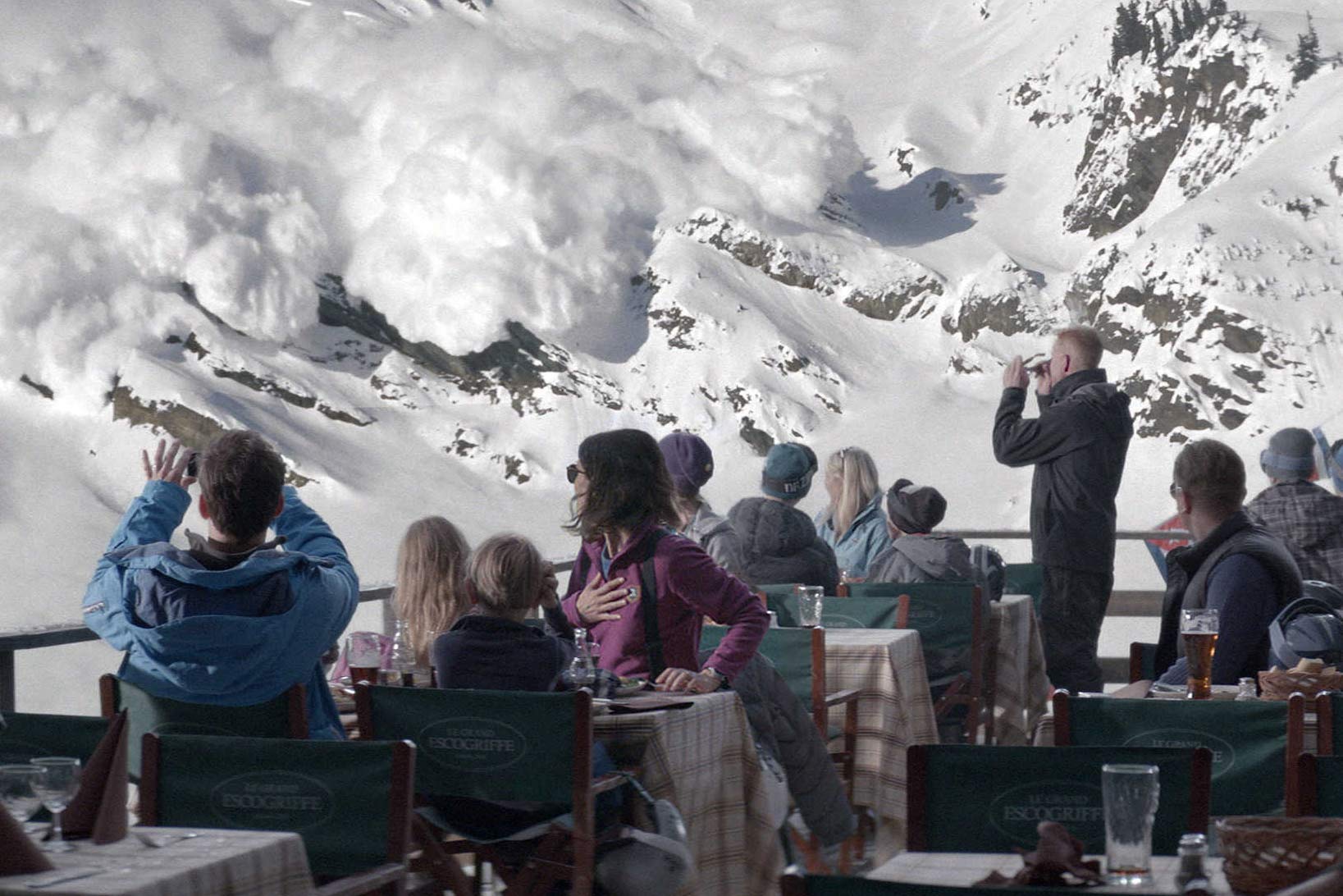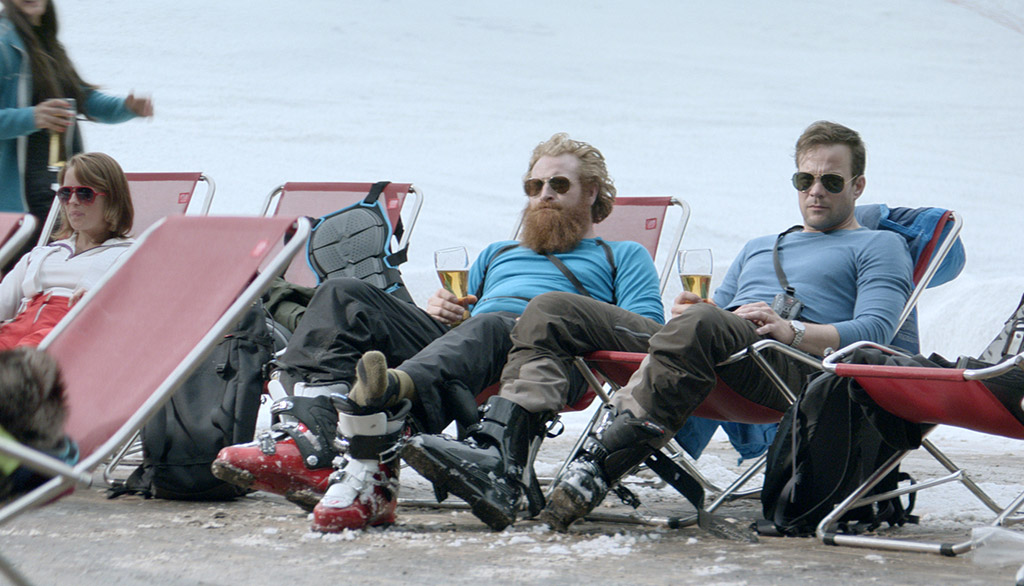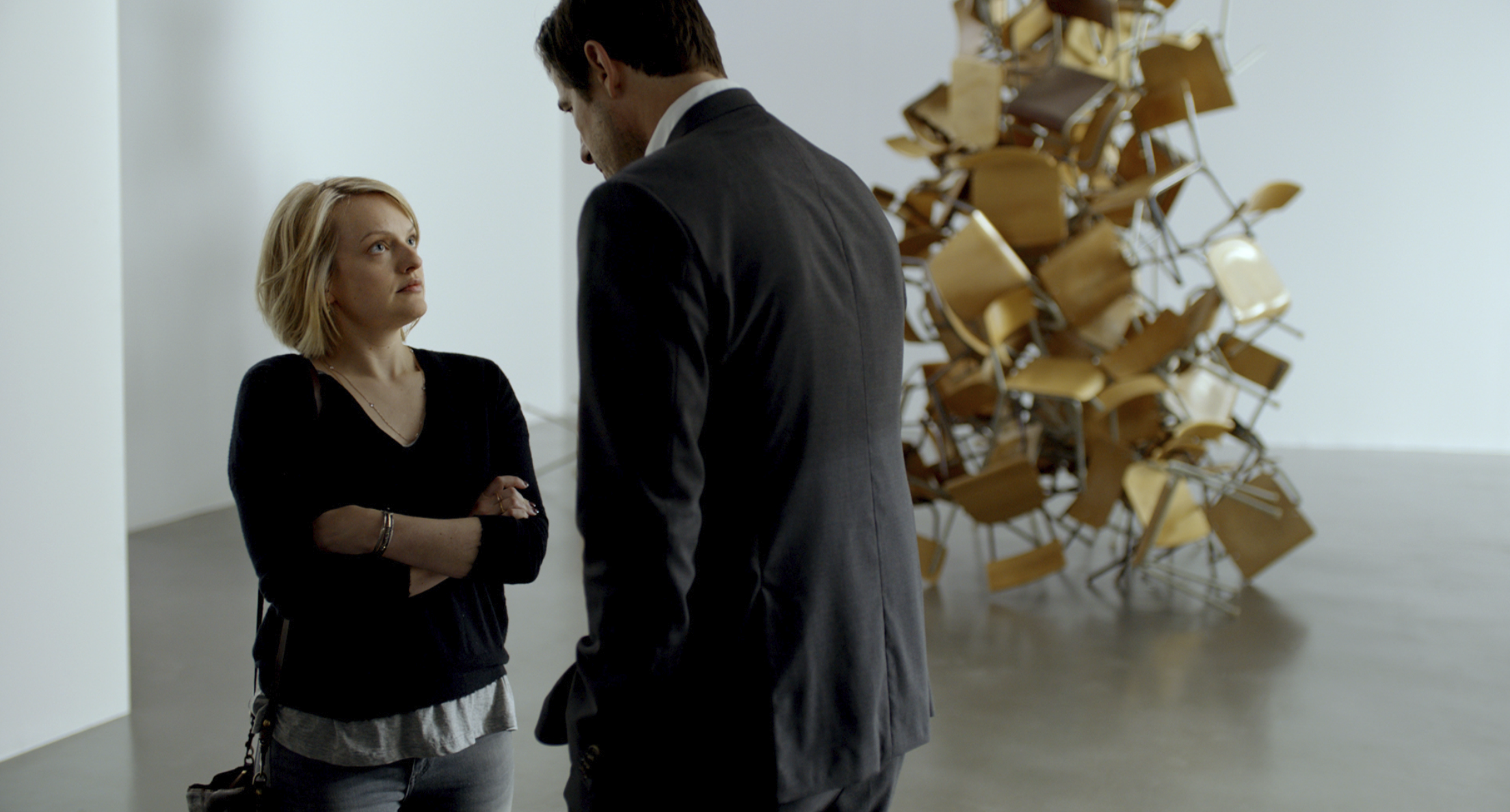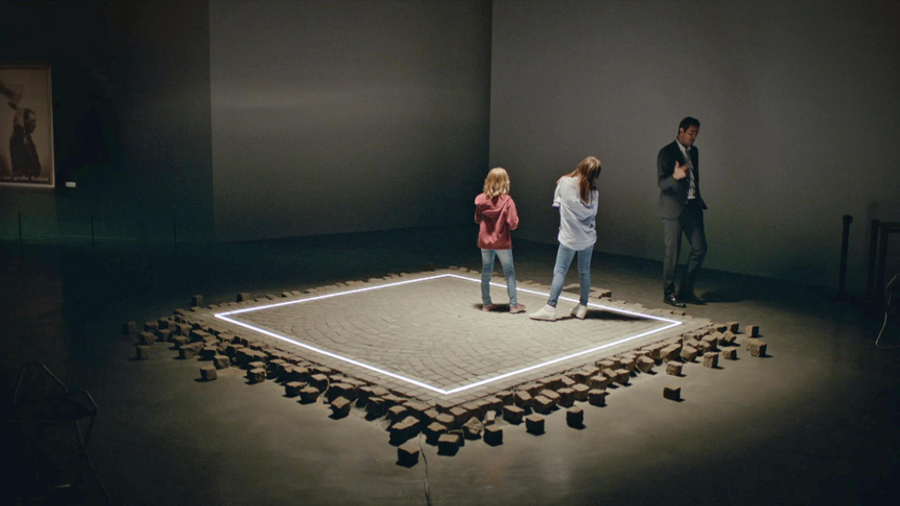Ruben Östlund | I AM Triangle of Sadness
Photo by Pascal Le Segretain/Getty Images Entertainment / Getty Images
Interview by Editor-In-Chief, Liberté Grace
Palme d’Or winner and auteur filmmaker Ruben Östlund is his characteristically exuberant persona, as he presented his highly anticipated new film project at this year’s Cannes Film Festival, during Film i Väst’s annual press event.
I AM FILM’s Editor, Liberté Grace, interviewed Östlund about his next creative venture and what drives his cinematic vision, to expand the consciousness of audiences, through his rebellious lense.
Liberté Grace You have a new film on the horizon. Can you tell us about this new adventure?
Ruben Östlund Yes, my next film is called, Triangle of Sadness. The ‘Triangle of Sadness’ is the wrinkles that you get between your eyebrows. You can get it when you have a lot of problems in your life. I think a lot of directors have this. This is a term that comes from plastic surgery because you can fix it with botox. The new project has its starting point in the fashion world and the beauty industry.
Liberté Grace How did this project come about?
Ruben Östlund Five years ago I met my wife Sina, she is a fashion photographer, and she told me these hilarious stories about the industry. She told me how they are very strategic when it comes to trying to sell clothes.
For example, when you look at cheap brands like H&M, the models are always smiling. The more expensive the brand gets, that smile disappears, and the model looks down on the consumer. It's so much about trying to create a false relationship with consumers, so that they (consumers) can buy themselves a position in the group.
She also told me a lot about the models. With their beauty they are able to climb within society.
“Even if you don’t have money or even if you don’t have an education, beauty is a currency that can help you to travel within society. And I think it’s quite interesting if you think about it. It’s one of the few things that can make a profit. It’s like winning the lottery. ”
The two main characters of the film are a male model and a female model. And both of them are very concerned about how they can find an exit from this industry. And the woman says, one day she can just become a trophy wife: "I can just marry rich."
We're going to follow this young couple. They are going on a luxury cruise. On this trip, they're going to meet the crème de la crème—the really rich people. The models are there because of the currency in their looks. The other guests, they have the money. And then, there is a Marxist captain on the boat, and he's always trying to get revenge on these rich brats.
When everybody goes to the Captain's dinner, the boat is starting to rock, and slowly, slowly, sea sickness will break them down. And I think, yeah...it's fun.
Liberté Grace It feels like Triangle Of Sadness has a very different energy to your previous films.
Ruben Östlund Yeah, I agree.
Liberté Grace The Square and Force Majeure felt a little bit more detached, observational and postmodern. But this one feels a lot more...fleshy, shall we say. Literally.
Ruben Östlund [Laughs] Yes.
Liberté Grace What are the central themes you are exploring and are there any specific set ups audiences can look forward to after The Square, which obviously won the highest honour here in Cannes as well as being nominated for an Academy Award?
Ruben Östlund We go from the fashion world, get to the boat, and the hierarchies in the fashion world and on the yacht are very strong. But when we come to the deserted island, suddenly the hierarchies are gone. We're going to have billionaires, and models on this deserted island, and a Filipino cleaning lady.
The thing about the Filipino cleaning lady is that she knows how to fish. And she's picking up fish after fish and she also knows how to make fire and cook. But, there's a desperate feeling now, and suddenly, these billionaires are starting to talk like dedicated socialists: that it's very important that we share equally now.
And then, we have the male model. What should he do with his currency? What should he do with his looks in this situation? The cleaning lady, she's around 60 or something, kind of short. When she's sitting there around the campfire distributing the resources, handing out the big fish, suddenly, she sees this young, very attractive man starting to look at her, starting to flirt with her, and she's thinking, "Is he looking at me?"
He spreads his legs to indicate to her that: "You have access," and then, he gets a bigger part of the fish. So, what happens is that the model is starting to sleep with the cleaning lady to get more fish–he becomes the trophy wife. I would love to tell you the ending, but...
Liberté Grace Hilarious, the world’s socioeconomic hierarchies turned upside-down. And so, with these themes focused on the misuse of power, why did you choose the setting of the fashion industry, as opposed to say the film industry?
The Square (2017) - courtesy of the artist
Ruben Östlund Well, I think there are many parts of the structure and the hierarchies that are fascinating. I think it's ridiculous when people working within the fashion industry always have to say, "It's art". You know? Like, I get it. And it's same thing with movies. But, I feel like, "No, it can be art. But it doesn't have to be."
The reason that I chose the fashion industry is, I think I've found an approach where I can highlight human behaviour; where I am drawing it from a starting point within the context of the beauty and fashion industry. The setup gives us the possibility to discuss how sexuality and beauty is an economy, how we use it and also, how is it used in the whole world that we are living in today?
I actually read that a scientist was doing a study on zebras in the Savanna. And you know, he was like, "Why are the zebras black and white?" And they started to try to study them, by following one individual within the herd. So, they sprayed a red dot on one Zebra, so they could follow it. But, the consequence was that it was taken by lions. So, by hiding in the herds—that's the camouflage of the fur, that prevents them from being eaten.
The fashion industry sells clothes with exactly the same strategy. You know, you get a fur, you get a coat. Like, when you're here (in Cannes), when you're trying to know, "Am I overdressed, am I underdressed?" Unquestionably, it's hard to find the right level.
Then, depending on which social class you're connected to, you have to adapt to that.
For the cheap brands—the models are smiling. And then, there are also a mix of different coloured models, of every race, so that you cover every audience. And then, when it gets more and more expensive, then there's one super human looking down on the consumer, and they're often white.
Liberté Grace Like a "F-you face”.
Ruben Östlund Yeah, exactly. And if you are going to buy your position up here and look down on a lot of people, you have to pay a lot of money. You know, I'm (as the consumer) down here and they're like, "Welcome to our in-crowd".
“I think what the fashion industry is doing is selling clothes on the backs of our bad self-esteem and pointing out to us: ‘If you don’t buy this, then you won’t be enough.’”
Liberté Grace Is there any personal connection for you in all of this, other than an analysis of us, as a highly dysfunctional society?
Ruben Östlund For me...yeah. I would say my mother is still a dedicated Communist. She has been since the 60s. Marx is someone whose theories we've discussed a lot. I really think that if you look at Marx's theories, you can apply them to looking at our society and have a greater understanding of our society; how an economical influence, how the structures of our power hierarchies are changing our behaviour.
The Square (2017) - courtesy of the artist
Liberté Grace Absolutely. And, now, you're exploring that dynamic within human relationships.
Ruben Östlund Yeah, definitely.
Liberté Grace You mentioned that incident between the woman and the man in which the woman deliberately waited for the man to pay the bill. That obviously happened to you. Do you think that if things were more equal in the workplace and women had more access to jobs, do you think that they would behave that way as much?
Ruben Östlund No, I think it would change, definitely. I think it's definitely highlighting an economical imbalance; that men have more money. I mean, still in Sweden, men are earning more than women, even if we're doing the same job. So, it's highlighting that. But it's interesting also, even if we're starting to balance that out, for women, it's still possible to play the role of, "I'm a trophy wife," you know?
Liberté Grace Is there a relationship between The Square and Force Majeure in this film? Do you see them, not as a trilogy, but a continuation of themes related to fabricated social constructs and agreements?
Ruben Östlund Yes. I see it quite much as almost like the third film about being a man, and looking at what it is to be a man in our times and really trying to focus on how the expectations, the stereotypes, the preconceived thoughts about what it is to be a man, are limiting us in life and what we are struggling with.
But, at the same time, putting ourselves into a context and looking at ourselves from a little bit of a distance. Looking at this mad theatre that this world is, you know?
Liberté Grace So, talk to me about your artistic passion as a director, what is the main motivation that drives your creativity?
Ruben Östlund wins the Palme d’Or in 2017 for The Square - courtesy of the Festival de Cannes
Ruben Östlund Well, I was at a screening yesterday in Cannes. And when you have a big premiere in the Lumiere and you have this tuxedo-dressed audience going in there, you know, you want to give them hell, right? I want them to have to confront themselves.
We have to think about our own lives, and as filmmakers, we have to affect the relationships that we have with other human beings, after we leave the cinema. So, I think that is one of the goals for me.
“I mean, today, you want to be challenged as an audience. You want to be surprised. You want to be like, ‘Oh my God. Where is this taking me?’ It would be nice if people can relate to a Ruben Östlund film that way.”
Even if you have a topic that you think is very important or content that you think is interesting, it's not a contradiction to try to make it as entertaining as possible. "Ok. Where am I going here? I have no idea where this is going to take me this time, you know?"
Liberté Grace If you had any advice for filmmakers: what would you say you know now, that you didn't know before?
Ruben Östlund First of all, you have to make films about what you are interested in. I was super interested in skiing when I was younger. My first films were skiing films. Rock music and skiing. And then, I got interested in other things and I started to film that.
So, always follow your own interest because then you will make a great film. Don't try to make a great film first and then create content for it. Follow your own interests and that will make your films much better.
Triangle of Sadness will be released in 2020.
Special thanks to Petra Kauraisa and Film i Väst for making this exclusive interview possible.
You can follow I AM FILM on Instagram (iamfilmofficial) #IAMFILM #MastersOfFilm and Join our list to receive more news and views by the Masters Of Film in Cannes.
ABOUT THE FILMMAKER
Ruben Östlund
Writer, Director
As an avid skier, Ruben Östlund directed ski films for five years, until his mid 20’s, testifying his taste for long sequence shots. He went on to study film at the University of Gothenburg where he developed his knowledge of constructed and well thought out sequence shots which has continued to evolve through all his films. His work is best described as humorous and accurate observations of human social behaviour, film blended with sociology. His feature films have premiered in Cannes. Turist won the Un Certain Regard Jury Prize in 2014. It was distributed in over 75 territories and became a theatrical box-office success. His fifth feature film, The Square, premiered in 2017 and won the prestigious Palme d’Or and later received a nomination for an Academy Award. [Courtesy of Festival de Cannes]










